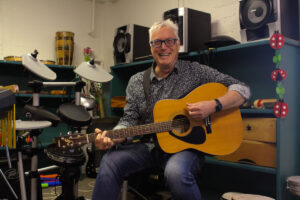‘White space’ technology the way forward for rural communities
‘White space’ technology has the potential to provide inexpensive, high-speed broadband for remote areas.
The use of new ‘white space’ technology has been welcomed by Rural Women New Zealand as a possible solution for consumers unable to benefit from the Rural Broadband Initiative.
Rural Women New Zealand president Liz Evans said ‘White space’ technology has the potential to provide inexpensive, high-speed broadband for remote areas.
Television White Space Technology (TVWS) gives broadband providers access to licensed TV spectrum which is currently unused. The technology will challenge the likes of basic radio communications used in current technology.
“Rural Women New Zealand has strongly advocated for more to be done to level the playing field for people who live in areas where the terrain or remote location mean that the only option is satellite broadband, which comes at a significant cost and is affected by weather conditions,” Ms Evans said.
A report written by independent Wellington-based telecommunications consultant Jon Brewer states 65,000 households will remain on satellite or 3G broadband solutions once the Government’s Rural Broadband Initiative (RBI) is completed in 2016.
Using the available television spectrum, TVWS should allow rural communities to use broadband services far more easily and effectively compared to Wi-Fi.
Priced closer to wireless broadband equipment than cellular equipment typically used to cover rural and remote communities, developers of TVWS say spectrum isn’t a scarce resource to be locked up and traded by wealthy corporations, it’s an abundant resource that should be fully used wherever possible.
“We would encourage our policymakers and telecos to investigate how television white space might be incorporated into our wireless technology to help bridge the digital divide for those who are going to be left out in the cold by the RBI,” Ms Evans said.
Clova & Crail Bays in the Marlborough Sounds, Parikino in the Whanganui River Valley, and Pourerere in Central Hawkes Bay are three rural communities which have been shortlisted for a TVWS evaluation as broadband satellite services are unavailable.
Each community will be evaluated to determine how TVWS might be useful in the delivery of broadband.




